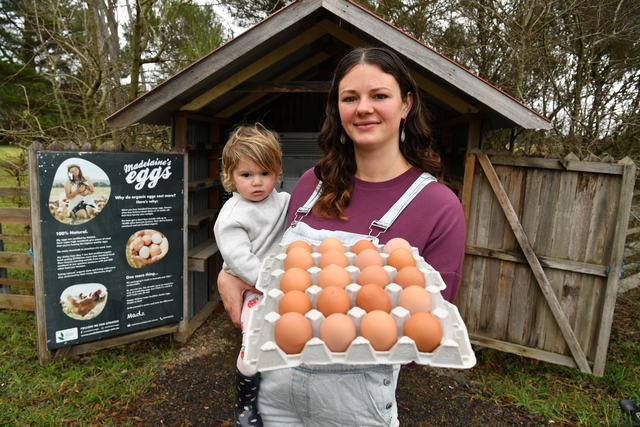Farmers from Sunbury and the Macedon Ranges are facing several winter-related challenges, with temperatures and frost affecting animals, produce, and infrastructure.
Madelaine’s Eggs farm manager Madelaine Stott said egg production at her Clarkefield certified organic farm has been exceptionally low due to the cold temperatures.
“[For eggs] to be certified organic, chickens have to live … as close as possible to what they would in the wild. Obviously, that means being outdoors, but when it’s cold like this in the Macedon Ranges, they use a lot of energy to stay warm – so they don’t lay as many eggs.” Ms Stott said.
Ms Stott said while the farm also experiences cold overnight lows in spring, the chickens get a chance to warm up in the mornings and then lay in daytime hours – but the consistently cold temperatures around the clock this winter are leading to a “double whammy” effect on the chickens.
“Definitely in laying rates, in productivity, this winter is up there with being [the most challenging],” she said.
Ms Stott said vegetables grown on the farm are also being affected, where she noticed that vegetables are not progressing or ready to harvest as they normally are at this time of year.
Sunbury farmer John Lakey said due to sporadic and generally low rainfall this year, the dry soil allowed frost to permeate well below the surface, destroying an important pipe on the farm that receives water from Gisborne.
Mr Lakey said the typical monthly rainfall average for his farm is 50 millimetres.
While the farm recorded higher than average rainfall in April, it recorded nine millimetres in February, zero millimetres in March, and 13 millimetres in June.
“The long term consequences of that is that … the soil is quite dry. So, when you get a cold frost here, it moves into the soil,” Mr Lakey said.
“So the polyethylene pipe … it shrunk with the cold chill, which has never happened like that at this time of the year,” he said.
Mr Lakey said he feeds his cows an energy supplement that helps feed their digestive bacteria that is used to process food and properly generate heat, which is important throughout the colder months.

















